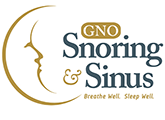When you find yourself struggling with a stuffy head, runny nose, and other sinus issues, you might attribute those symptoms to common allergens such as pollen or mold. However, many other everyday irritants can cause similar symptoms, misleading you into thinking you have a head cold, the flu, or an allergy.
Once you know what kinds of triggers can set off sinus symptoms, you and your ENT can discuss those triggers and come up with some effective strategies for minimizing your exposure to them in your everyday life. Take a look at four examples of environmental irritants you’ll want to avoid if your sinuses regularly bother you.
1. Smoke
Even if you love the smell of smoke, your sinuses may not share your enthusiasm for this airborne irritant. Unfortunately, smoke figures prominently in air pollution. Smoke, along with dust and other airborne particles small in diameter, can cause chronic sinusitis.
Tobacco smoke can also cause chronic sinusitis. This airborne irritant can create an accumulation of mucus in your sinus cavities, which, in turn, can leave you with a stuffy, runny nose and other uncomfortable symptoms. At the same time, smoking can raise your risk for sinus cancer and colds while impairing your sense of smell.
While you can choose not to smoke, you may have less control over the smoke content in your local air. Both urban pollution and rural wildfires can bombard you with smoke. Your ENT may recommend that you invest in high-quality HEPA filters and weatherstripping products to keep your home as smoke-free as possible.
2. Medications
If you experience the sneezing and runny nose characteristic of sinusitis, you might find the cause of those symptoms in your medicine cabinet. A wide range of medications can cause or worsen sinus issues. Common offenders include erectile dysfunction drugs, birth control pills, depression medications, sedatives, and beta blockers.
When you have a stuffy nose, you may naturally reach for an over-the-counter decongestant spray or similar product to obtain relief. However, some of these products can actually worsen nasal and sinus symptoms with constant or repeated use. Ask your ENT whether you need a different solution to your congestion problem.
3. Scents
A variety of scents can trigger sensitivity reactions, as opposed to allergic reactions, in susceptible individuals. According to several studies, perfumes, colognes, household deodorizers, laundry detergents, and other scented products have irritant effects on anywhere from 20 percent to over 30 percent of the population.
Scent sensitivities can trigger headaches, migraines, sinus congestion, eye-watering, and asthma attacks. However, if you suffer from this problem, your symptoms may extend beyond your head, nose, or sinus cavities. You might also experience dizzy spells, cognitive issues, skin tingling, hives, or digestive problems.
4. Cold Weather
You need not suffer exposure to chemicals or particles to develop annoying sinus issues. Chilly temperatures can make you more vulnerable to sinusitis and related conditions. Cold, dry air can dehydrate mucus membranes, promoting sinus infections and congestion even as cold and flu season make things worse.
Your responses to cold temperatures can also complicate your sinus issues instead of relieving them. For instance, your home’s central heating may aggravate the dryness as it warms you up. If you and your pets stay indoors to avoid the cold, the accumulation of dust and dander may worsen your sinus symptoms.
If you experience chronic sinus problems but can’t figure out the underlying cause, come to GNO Snoring & Sinus. Our skilled, experienced ear, nose, and throat team can evaluate your symptoms, inspect your sinuses, and recommend treatments or lifestyle changes to get those symptoms under control. Contact our clinic today.

